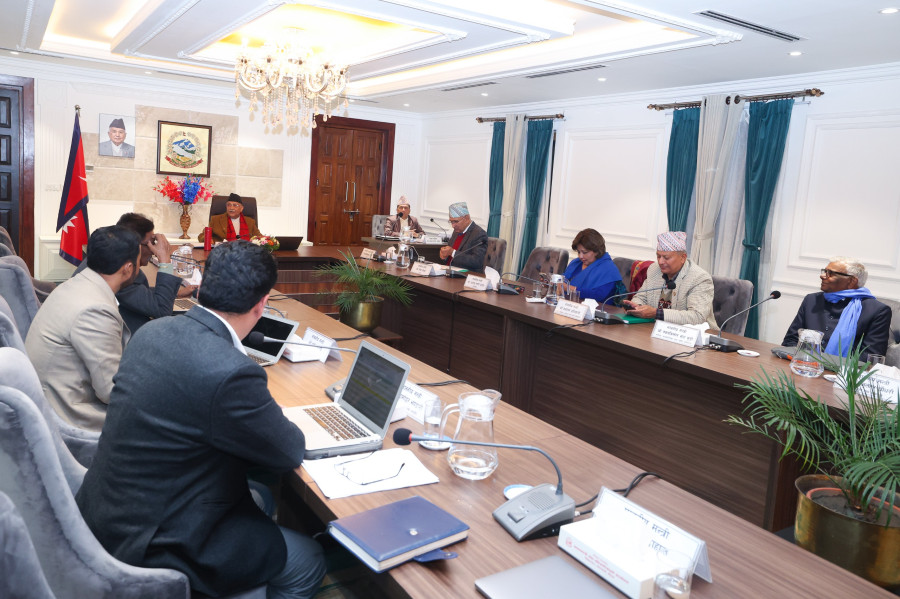Editorial
Stumbling on ordinances
Why did PM Oli take the route instead of convening Parliament and getting the bills endorsed there?
Seemingly each week, a new controversy erupts in Nepali politics, for instance the issue of ordinances this week. After the government on Friday recommended President Ramchandra Paudel to issue five ordinances, they have become a matter of serious debate. Prime Minister KP Sharma Oli has tried to provide the rationale behind amending laws through the ordinances while other stakeholders have expressed serious doubt over the government’s intent. So much so that even the President issued only four of the five ordinances forwarded by the government and held one related to land, forest and national parks, citing the matter’s sensitivity. (The head of state endorsed the fifth one only on Wednesday afternoon, only after studying the bill for a few more days.)
Opposition parties have taken serious exception to the government’s move and are in a mood to capitalise on it. They say the government intends to rule through ordinances by bypassing Parliament. Prime Minister Oli chose to change laws through ordinances even as various political parties including the main opposition the CPN (Maoist Centre) were pressing the government to call the winter session of the federal parliament at the earliest. The opposition parties and other stakeholders had not been so critical when the government, a month ago, issued an ordinance to amend some Nepal laws on cooperatives. But the same sections of the society were highly skeptical when the Cabinet meeting last week forwarded multiple other ordinances to Sheetal Niwas.
The government has failed to assure even cooperative victims that the new law would help them get back their deposits from fraudulent cooperatives. Representatives of the agitating cooperative victims have expressed their dissatisfaction over several provisions included in the cooperative ordinance. But there are also sectors that appear happy with certain other provisions of the ordinances. The business community is happy as new provisions simplify company registration, operation and dissolution. Those working in the field of information and technology are happy that the Nepali IT companies will now be allowed to set up branches abroad and bring the money back home. The prime minister and ministers argue that the government pushed the ordinances to remove hindrances in service delivery and to attract investment.
Issuing an ordinance is not inherently wrong. A government sometimes needs to issue them for some urgent work that existing laws do not cover. Therefore, the provision of ordinance is included in a constitution allowing the government to amend laws when Parliament is not in session. But the prime minister has failed to convincingly answer a basic question: why did he resort to ordinances instead of convening Parliament and getting the bill endorsed via the legislature? It is true that our Parliament sometimes takes months or even years to pass a bill. Nonetheless, if there was a need to urgently amend a certain law, the prime minister could have clarified the matter before the whole country from Parliament’s rostrum. In a democracy, the route a government takes in making vital decisions is as important as the final goals. This is where Oli has failed.




 10.12°C Kathmandu
10.12°C Kathmandu













